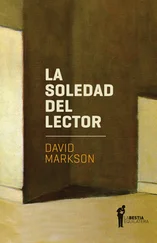In addition to Lawrence of Arabia's name, certain other names similarly appeared in English.
Although doubtless when one says that certain other names appeared in English, one is really only saying that in a manner of speaking.
Surely somebody who was reading the book in German would not stop on such occasions as when he came to the name Winston Churchill, say, or to the name T. E. Shaw, and say to himself, this book I am reading is in German but the names Winston Churchill and T. E. Shaw are in English.
Even if it is perhaps amusing to think of Winston Churchill as not being an English name.
Still, this is not basically a thing one does.
Any more than when I myself was reading a translation of a Greek play I did not stop on such occasions as when I came to the name Clytemnestra, say, or to Electra, and say to myself, this play I am reading is in Gilbert Murray but the names Clytemnestra and Electra are in Greek.
Even if on another level altogether that other name has had to begin to trouble me again, naturally.
Or at least to the extent that after having thought about somebody called T. E. Shaw this often I do wish that the man might have done something more that I knew about than simply having translated the Odyssey.
Although one can now safely assume he was in some way connected to Lawrence of Arabia also, of course.
Had his name appeared in any of the captions I might have at least had a look at him as well, even if that would have hardly eliminated the problem.
Each of the photographs was only of Lawrence of Arabia, however.
Still, it undeniably does remain an interesting coincidence to have been thinking about somebody one knows so little about and then to have noticed his name in a book not that long afterward, even if one has no way of making sense out of the book in which his name happened to be noticed.
And at least it would now appear fairly certain that he was not a baseball player, as I had perhaps once thought.
Certainly there was no connection between Lawrence of Arabia and baseball in the movie, at any rate.
All things considered, most likely T. E. Shaw was somebody Lawrence of Arabia once fought with in Arabia, which I do remember many scenes of in the movie.
Although when I say fought with, I should perhaps point out that I mean fought on the same side as, incidentally.
Frequently when one says that somebody fought with somebody one could just as readily mean that the person was fighting against that person, as it happens.
So that when Marlon Brando and Benito Juarez were in Mexico, for instance, as in another movie I once saw, one could say that one side was fighting with the other side and mean exactly the opposite from what one means when one says that T. E. Shaw most likely was somebody that Lawrence of Arabia was fighting with in Arabia.
For some curious reason one's meaning would generally appear to be understood in such cases, however.
Naturally Lawrence of Arabia would not have been called of Arabia until some time after he had gotten to Arabia either, by the way.
And what has also only now struck me is that when one is reading certain translations in which what one keeps coming to is a name like Rodion Romanovitch, on the other hand, possibly one does stop and say that the name one has just come to is not an English name after all.
Well, or when the people who do the translations make use of peculiar spellings, as well. Such as for Klytaemnestra.
Or Elektra.
But in the meantime something I believe I may not have indicated, when I indicated that the life of Lawrence of Arabia was the only other book from the carton I was able to recognize, was that it was also the last book from the carton.
Why I find this worth pointing out, as it happens, is that when one says that a certain book was the last book from a carton, what one almost always happens to be saying at the same time is that it was also the first book to have been put into that carton.
And the reason for any particular book being the first book to have been put into a carton, generally, is because it also happens to have been the largest book among those being put in.
As a matter of fact this can practically be taken as a general rule. Almost categorically, if the other books are put into the carton before the largest book there will scarcely ever be any way to fit in the largest book when one finally gets to the largest book.
So what I actually ought to have said that I find worth pointing out is that I have never been able to understand this at all.
Surely there has got to be the identical amount of space in the carton no matter which way the books go in.
Just go try putting books into a carton without putting the largest book in first, however.
In fact now that I think about it, either Archimedes or Galileo may have once proved something quite extraordinary in regard to this, even if for some reason how they proved it was by putting books into a bathtub instead of into a carton.
Well, doubtless the reason they put the books into a bathtub was because their own edition of the life of Lawrence of Arabia would not fit into the carton at the end either, which would have been what led Archimedes or Galileo to do the experiment to begin with.
I have no idea any longer how much water one needs in the bathtub to conduct one's own version of this experiment, on the other hand.
Science generally being a subject one has a tendency to forget as one gets older, unfortunately.
Conversely, what I do only this tardily come to realize is why those eight or nine cartons of books must have been put into the basement after all, which I believe I have said is something else that has more than once perplexed me.
Almost certainly what must have happened was that nobody living in the house at the time was able to make any more sense out of most foreign languages than I myself am able to do now.
Now heavens, how weary I have gotten of looking at that word Dasein and having no idea what it means, one can surely imagine one of these people finally deciding.
Or, now heavens, how weary I have gotten of noticing that silly volume which appears to be called The Way of All Meat.
Downstairs they go, every last one of the troublesome things.
Granting that this would in no way explain why the translation of The Trojan Women happened to be included, although surely this can be dismissed as an oversight.
When one comes down to it there are easier things to do than filling eight or nine cartons with books.
Filling eleven cartons with books not being one of them, in fact.
But what this same assumption would meanwhile also appear to solve, as it happens, is that question as to whether the shelves in this house are to be thought of as being half empty or half filled, which one certainly finds it agreeable to be able to stop fretting over.
Even if what this next reminds me of, which I have not yet come to grips with at all, is the matter of the atlas.
Doubtless I have not even mentioned the atlas lately, to tell the truth.
Which is not to imply that I have not been thinking about the atlas, however.
The reason I have been thinking about it, basically, is because of the way in which the atlas has always had to lie on its side, which I suspect I did once point out was because of its being too tall for the shelves.
Now naturally, there would have always been people in this world who would have failed to make allowances for such taller books when they were building bookshelves.
But what I am actually getting at, here, is that this very same failure might also explain why there does not happen to be one solitary book about art in this house, which is still one further item I have mentioned being perplexed by.
Читать дальше












